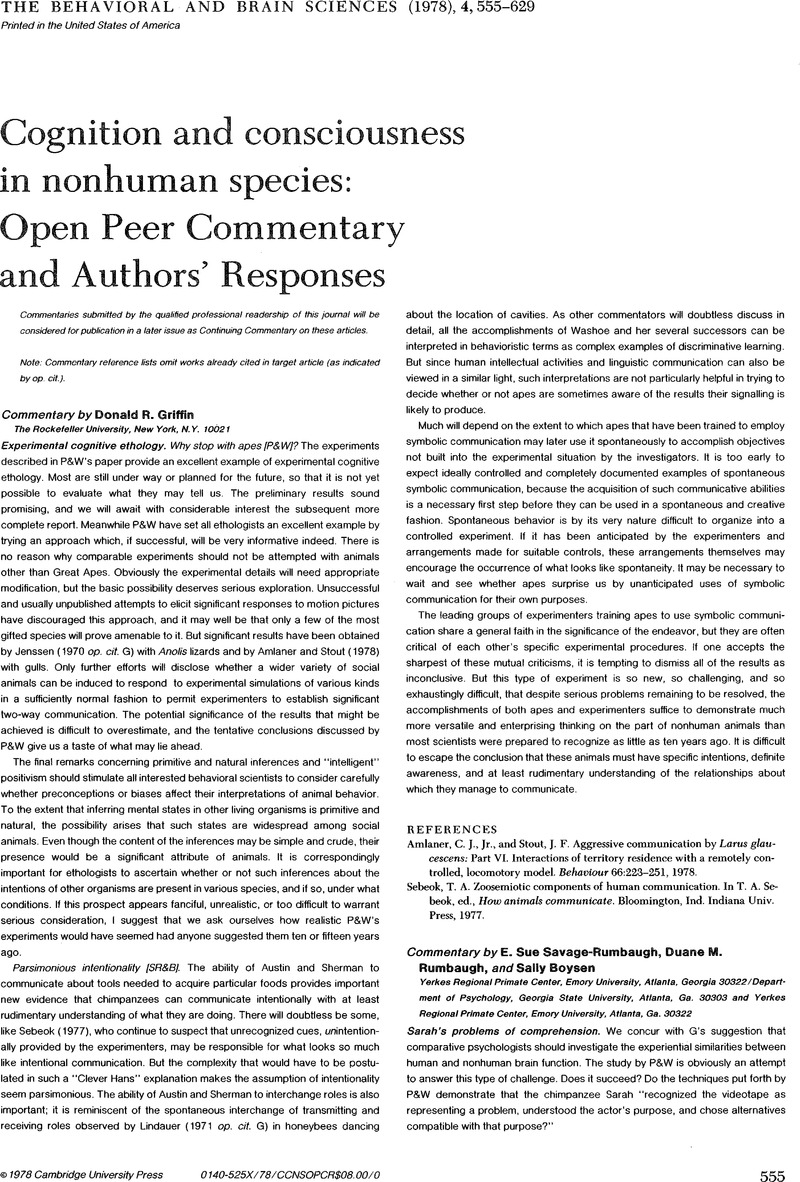No CrossRef data available.
Article contents
Perception and animal consciousness: the philosophical context [G, P&W]
Published online by Cambridge University Press: 04 February 2010
Abstract
An abstract is not available for this content so a preview has been provided. Please use the Get access link above for information on how to access this content.

Information
- Type
- Open Peer Commentary
- Information
- Behavioral and Brain Sciences , Volume 1 , Issue 4: A Special Issue on Cognition and Consiousness in Nonhuman Species , December 1978 , pp. 577 - 578
- Copyright
- Copyright © Cambridge University Press 1978
References
REFERENCES
Campbell, D. T. A phenomenology of the other one: Corrigible, hypothetical, and critical. In Mischel, T. (ed.), Human action: Conceptual and empirical issues. New York: Academic Press, 1969.Google Scholar
Campbell, D. T. Evolutionary epistemology. In Schilpp, P. A. (ed.), The Philosophy of Karl Popper, LaSalle, Ill: Open Court, 1974.Google Scholar
Heffner, J. Some epistemological aspects of recent work in visual perception. In Suppe, F., and Asquith, P.D. (eds.), PSA 1976, vol. 1. East Lansing: Philosophy of Science Association, 1976.Google Scholar
James, W.Does consciousness exist? Journal of Philosophy, Psychology, and Scientific Method 1:477–91, 1904 (frequently reprinted).CrossRefGoogle Scholar
Shimony, A.Perception from an evolutionary point of view. Journal of Philosophy. 68:571–583, 1971.CrossRefGoogle Scholar
Spiegelberg, H.The phenomenological movement. 2nd. ed.The Hague: Martinus Nijhoff, 1971.Google Scholar

